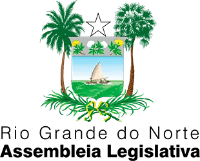
First International Conference About Modernisation in Subnational Parliaments
How it was
Bússola Tech, in collaboration with the Legislative Assembly of Rio Grande do Norte, hosted LegisTech: Modernisation of Subnational Parliaments on April 24th and 25th, 2025, at the Legislative Assembly of Rio Grande do Norte in Natal, Brazil. Held over two days, the event convened secretaries-general, clerks, technology directors, and parliamentary experts from subnational legislatures around the world to explore strategies for institutional modernisation and digital transformation at the state and provincial levels.
The conference centered on the theme “Modernisation of Subnational Parliaments,” underscoring the growing necessity for technological innovation in legislatures. Through a series of presentations and panel discussions, participants examined how artificial intelligence can be integrated into legislative workflows, assessed procedural adaptations required for new technologies, and compared modernisation initiatives implemented by subnational assemblies globally. The event demonstrated Bússola Tech’s and the Legislative Assembly of Rio Grande do Norte’s shared commitment to advancing more efficient, transparent, and resilient parliamentary institutions.
The opening session featured remarks from Ezequiel Ferreira, President of the Legislative Assembly of Rio Grande do Norte; Augusto Viveiros, Director-General of the Legislative Assembly of Rio Grande do Norte; and Luís Kimaid, Executive Director of Bússola Tech. Each speaker highlighted the unique challenges faced by subnational legislatures and the importance of collaboration across jurisdictions to drive meaningful change.
A keynote panel discussion titled “What Does It Mean to Be a Modern Legislature in the Age of New Technologies?” was moderated by Luís Kimaid and included contributions from Augusto Viveiros, Roberto Eberhardt, CIO of the Ontario Legislative Assembly (Canada); Andy Beattie, Chief Parliamentary Counsel in Scotland; and Martin Montes, Professor at the Austral University of Argentina. The panelists shared their perspectives on institutional readiness, the balance between tradition and innovation, and lessons learned from diverse legislative environments.
Following the panel, Mário Sérgio Gurgel, Technology Director of the Legislative Assembly of Rio Grande do Norte, presented an overview of the modernisation efforts underway in Rio Grande do Norte, detailing recent digital tools and process improvements. Roberto Eberhardt then described the modernization journey of the Ontario Legislative Assembly. Wade Ballou, Legislative Counsel of the U.S. House of Representatives (retired), showcased the U.S. House’s Comparative Print Suite project, demonstrating how automated comparison of legislative texts has streamlined review processes. Later, Luís Kimaid, Wade Ballou, Fotis Fitsilis (Head of Department of Scientific Documentation and Supervision, Scientific Service of the Hellenic Parliament), and Grant Vergottini (CEO of Xcential Legislative Technologies), presented the book “Artificial Intelligence in Legislative Services: Principles for Effective Implementation,” discussing best practices, ethical considerations, and pilot cases from various parliaments.
An additional session featured William Clark, Program Principal of the U.S. National Conference of State Legislatures, who outlined the NCSL’s digital initiatives, and Sean McSpaden, Principal Legislative IT Analyst of the Oregon Legislative Assembly, who shared Oregon’s experience implementing new digital tools. Grant Vergottini returned to discuss “Effective Usage of Artificial Intelligence in Legislative Drafting”.
On the second day, a panel on “Challenges for the Implementation of New Technologies in Legislative Services” was again moderated by Luís Kimaid, with William Clark, Mário Sérgio Gurgel, Fotis Fitsilis, Grant Vergottini, and Sean McSpaden as panelists. They examined issues such as change management, data governance and integration with legacy systems, as challenges to successfully adopt innovative technologies.
Midday presentations included Ornella Vanzillotta, Director of International Relations and Cooperation of the Buenos Aires Legislature, who described Buenos Aires’s digital modernization roadmap; Fotis Fitsilis, who presented the latest academic research on artificial intelligence applications in parliamentary contexts; Bernice Watson, Clerk Assistant of the Queensland Parliament (Australia), who outlined Queensland’s phased approach to e-committee systems; and Andy Beattie, who discussed the Scottish Legislative Counsel’s adoption of e-Law.
The final panel, “Procedural Preparations Legislatures Should Adopt for Emerging Technologies,” was moderated by Luís Kimaid and featured Wade Ballou, Bernice Watson, Tatiana Cunha, Legislative Director of the Legislative Assembly of Rio Grande do Norte, and Luís Fernando Pires Machado, Legislative Process Professor. Together, they emphasized the need for updated standing orders, new training programs for legislative staff, and frameworks to ensure transparency and public trust as AI and other technologies become integral to law-making.
Closing remarks were delivered by Augusto Viveiros, and Luís Kimaid, who reflected on the collective insights shared over two days and reiterated the event’s goal of fostering lasting collaboration among subnational legislatures. The conference concluded marking the culmination of an impactful exchange of ideas aimed at shaping the future of modern, technology-driven parliaments.
Co-realisation with:

Privacy Policy
























